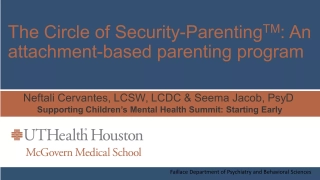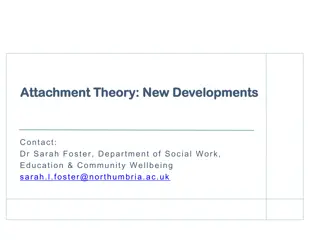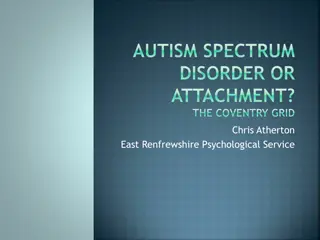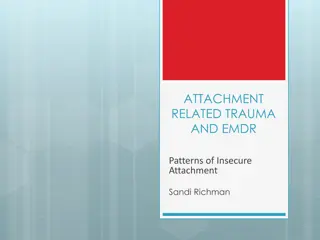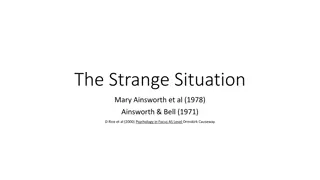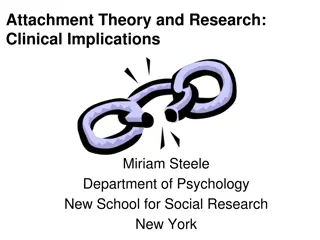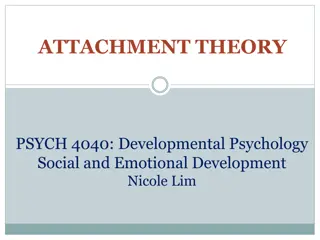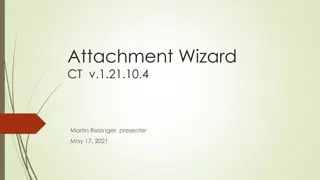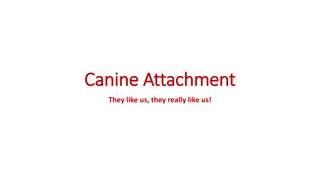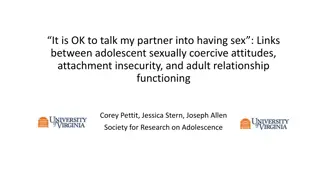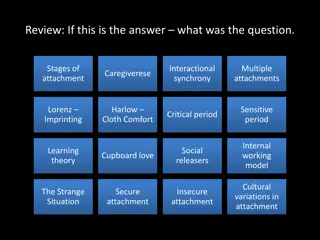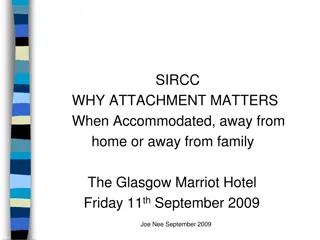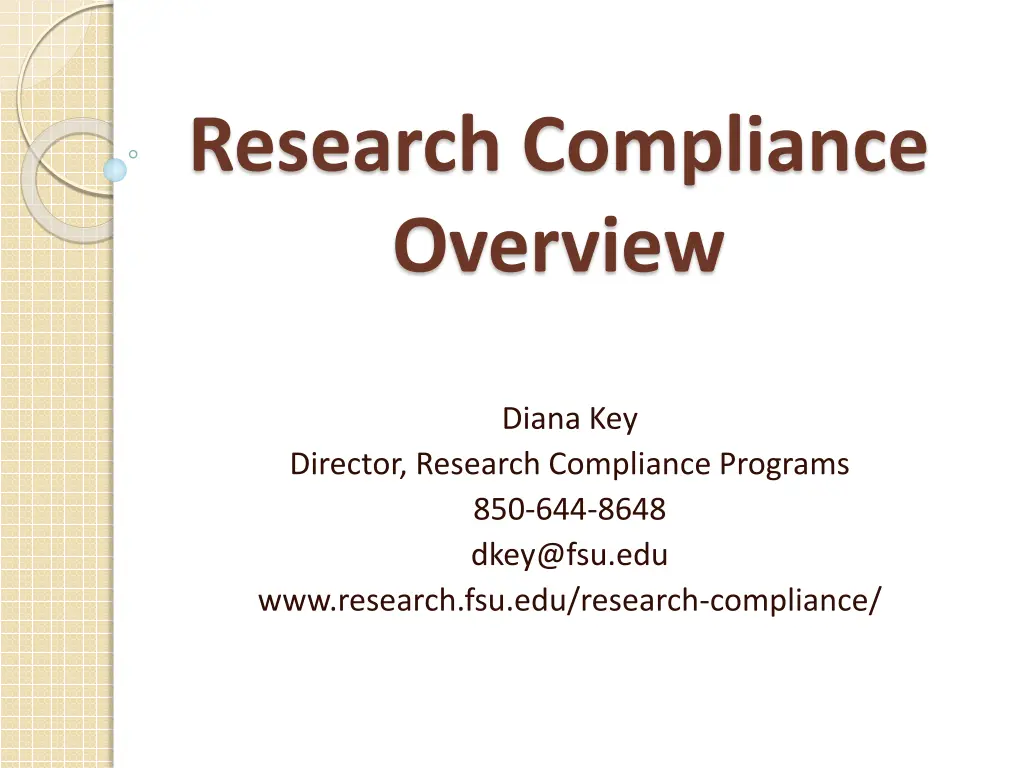
Research Compliance at FSU
Explore the Research Compliance Programs at Florida State University (FSU) managed by Diana Key, the Director of Research Compliance Programs. The Office of Research Compliance Programs (ORCP) oversees various areas including conflicts of interest, export controls, research data management, research misconduct, and compliance training. Learn about potential bases for conflicts of interest and how they could impact research activities. Access the Research Compliance Website for more information.
Download Presentation

Please find below an Image/Link to download the presentation.
The content on the website is provided AS IS for your information and personal use only. It may not be sold, licensed, or shared on other websites without obtaining consent from the author. If you encounter any issues during the download, it is possible that the publisher has removed the file from their server.
You are allowed to download the files provided on this website for personal or commercial use, subject to the condition that they are used lawfully. All files are the property of their respective owners.
The content on the website is provided AS IS for your information and personal use only. It may not be sold, licensed, or shared on other websites without obtaining consent from the author.
E N D
Presentation Transcript
Research Compliance Overview Diana Key Director, Research Compliance Programs 850-644-8648 dkey@fsu.edu www.research.fsu.edu/research-compliance/
Office Research Compliance Programs (ORCP) The ORCP is responsible for the development, oversight, and monitoring of the research compliance program for FSU. This program encompasses all areas that relate to FSU s research and creative activities, including (but not limited to) the areas listed below:
ORCP The ORCP has primary responsibility for these programs, among others: Conflicts of Interest Export Controls Research Data Management (security, privacy, policies, etc.) Research Misconduct Research Compliance Training
Research Compliance Website https://www.research.fsu.edu/research-compliance/
Conflict of Interest in Research A situation in which an individual s outside financial or other interests could directly and significantly affect the design, conduct, or reporting of the research.
Potential Bases for COI 1) Outside activities which require time commitments that would interfere with faculty members university duties. 2) Outside activities that require the use of university resources such as equipment or personnel.
Potential Bases for COI 3) Outside activities where FSU employees or students that are supervised by the conflicted employee are also involved in the activity. 4) Outside activities with a person or entity, or financial interests in an entity, that does business with the university.
Potential Bases for COI 5) Outside activities or financial interests in an entity which competes with the University's activities, particularly when these are in the same field as that of the faculty. 6) Outside activities or financial interests in an entity that is supporting the faculty member's research or training activities at the University.
Federal Uniform Guidance 2 CFR 200.112, Conflict of Interest Grantees must disclose in writing any potential conflicts of interest in accordance with the agency s requirements. This regulation refers to conflicts that might arise around how a non-Federal entity expends funds under a Federal award. These types of decisions include, for example, selection of a subrecipient or procurements. Example: Dr. Johnson has selected Research Unlimited to perform a portion of the work on a Federal award. Since Dr. Johnson owns a portion of the company, he must disclose this relationship to FSU where the conflict will either be managed or eliminated.
Federal Financial Conflict of Interest Most funding agencies have regulations that require the university ensure that there is no reasonable expectation that the design, conduct, and reporting of the research will be biased by any significant financial interest of any Investigator working on the research. University Policy 7A-21, Financial Conflict of Interest Disclosure aims to prevent or resolve, through management and/or mitigation, real or apparent conflicts that may exist.
Goals of FSUs FCOI Policy Protect research subjects Protect the integrity of the research Protect the reputation of the university, faculty, and students Avoid Litigation Avoid Noncompliance
Subrecipients Subrecipients are required to abide by the same COI requirements as FSU. If the subrecipient intends to follow their own policy, they must certify as part of the subaward that its policy complies with the funding agency regulations. If the subrecipient cannot so certify, then the agreement shall state that the subrecipient investigators are subject to FSU s policy.
State of Florida Code of Ethics F.S. Chapter 112 A University employee may not be employed by or have a contractual relationship with a company which is "doing business" with the University. The statues does allow exemptions under certain circumstances.
Conflict of Interest in Procurement FEDERAL Excerpt from 2 CFR 200 (Uniform Guidance), 200.318 General procurement standards. 200.318(c)(1) No employee, officer, or agent may participate in the selection, award, or administration of a contract supported by a Federal award if he or she has a real or apparent conflict of interest. FSU/STATE OF FLORIDA Excerpt from FSU Policy 4-OP-A-6 PROCUREMENT OF COMMODITIES AND CONTRACTUAL SERVICES, Paragraph F: Section 112.313, Florida Statutes, places restrictions on University employees who, acting in a private capacity, attempt to rent, lease or sell any realty, commodities or contractual services to their own agency. The burden of violating the State's Conflict of Interest laws never shifts to the University.
Conflict of Interest and Intellectual Property Three areas of potential conflict of interest in Technology Transfer: Licensing to companies in which an investigator has a financial interest Equity participation by inventor/investigator in start-up companies that are funding research in the inventor s lab Consulting relationships with companies that may directly benefit from the investigator s research
Conflict of Interest and Intellectual Property Commonly-used management tactics: Limit inventor s activity with the start-up if inventor stays at university Limit licensee s use of students Require faculty to advise students of start-up activities Insist upon arm s length negotiations between licensee and the university.
Managing a Conflict If a conflict of interest (or the appearance of one) is found, we have to find a way to prevent it from adversely influencing the research. Some management options used by the university include: Requiring disclosure of financial interests in presentations, publications, and (when human subjects research is involved) the informed consent process so that others are aware of potential conflicts and can act accordingly; Monitoring the research or checking research results for accuracy and objectivity; Removing the person with the conflict from crucial steps in the research process, such as the interpretation of data or participating in a particular review decision. If a conflict cannot be effectively managed it must be eliminated by such measures as divesting equity or financial interest, or resigning from the company s governing board.
Non-compliance/Disciplinary Action Any failure by an Investigator to adhere with FSU or agency COI regulations may be cause for disciplinary action pursuant to the FSU Faculty Handbook, Collective Bargaining Agreement, and other applicable employee disciplinary policies. FSU may also suspend all relevant research activities or take other disciplinary action until the matter is resolved or other action deemed appropriate by the Institutional Official (in consultation with the chair, dean, and Vice President for Research) is implemented.
What Did You Learn Today? True or False. The simplest way to describe a potential conflict of interest is when a person serves two entities at the same time.
What Did You Learn Today? True. Any situation where a person has dual loyalties often results in a conflict of interest. In research, if an investigator is a paid consultant by the company sponsoring the research, bias may exist in the design, conduct or reporting of the research.
What Did You Learn Today? As an FSU employee, I would have a conflict if (a) my private interests interfered with the public interests of the University or, (b) my outside activity such as consulting interfered with my ability to fulfill my University responsibilities. A. (a) only C. (a) and (b) B. (b) only D. Neither (a) nor (b)
What Did You Learn Today? Answer: C. (a) and (b)
What Did You Learn Today? True or false: It is the responsibility of my chair/supervisor to make sure I adhere to the conflict of interest rules and regulations.
What Did You Learn Today? False. It is the responsibility of the individual faculty or staff member to comply with all university, state, and sponsoring agency regulations.
What Did You Learn Today? True or False: The following are all situations which could be a conflict: A. An outside activity on which I spend a lot of hours and I do not get my FSU work done. B. An outside activity involving a student I supervise at the University. C. An outside activity with an entity that does business with the University. D. An outside activity in which I am not being paid.
What Did You Learn Today? Answer: True
Online On-Demand Training CITI Conflict of Interest Course CITI is a web-based tutorial developed by experts in the research community. https://www.research.fsu.edu/research- compliance/training/
What IsAn Export? Goods Physical shipments Re-Exports (sending to one country knowing that they will send it to another) Exposing controlled goods to foreign nationals Technology/Technical Data Sending it overseas Orally disclosing it Exposing controlled technology to foreign nationals
Who is a Foreign National? Non-U.S. nationals For export purposes, U.S. nationals are: U.S. Citizens U.S. Permanent Residents (Green Card) U.S. Asylum Grantees and Refugees (limited time period) Foreign Entities Institutions or corporations without a legal presence in the U.S. Foreign government representation (e.g., Consulates) Individuals (including U.S. citizens) who represent or act on behalf of these entities
3 Primary EC Regimes International Traffic in Arms Regulations (ITAR), Department of State, 22 C.F.R. 120-130 (Export Controls) Covers Munitions, other military application technologies, both offensive and defensive, space technology; and much that is not intuitively military Export Administration Regulations (EAR), Commerce Department, 15 C.F.R. 730-774 (Export Controls) Dual use technologies with primary commercial application, but also possible military use. Includes many common items (e.g., normal computers, cameras, GPS) Office of Foreign Assets Control (OFAC) Regulations, Treasury Department, 31 C.F.R. 500 et seq. (Trade Sanctions) Implements U.S. Foreign Policy, imposes Trade Sanctions. Sanctions vary by country Maintains list of sanctioned individuals, groups, and entities May prohibit travel, collaboration, academic conferences, contracts, payments-- regardless of your discipline
Proprietary/Restricted Research Technical data and software applications received from government or corporate sponsors remains subject to the export control regulations when it is identified as proprietary or otherwise subject to access or publication restrictions. Information that is designated as Controlled Unclassified Information, or otherwise restricted constitutes export controlled information.
Penalties Violations are Subject to Civil and Criminal Penalties Against Individuals and Institutions Can Also Result in Loss of Export/Deemed Export Privileges and Loss of Funding ITAR: (Individual and Entity) Criminal Fines: < $1M and/or < 10 Years in Prison Civil Fines: < $500K and Forfeitures EAR: Criminal Fines/Entities: < Greater of $1M or 5X Value of Export Criminal Fines/Individuals: < $250K and/or < 10 Years in Prison Civil Fines: <$250K OFAC: (Individual and Entity) Criminal Fines/Entities: < $1M Criminal Fines/Individuals: < $250K and/or < 10 Years in Prison Civil Fines: <$250K Most, if not all, of these penalties are PER VIOLATION!
Worried? Dont Be! Export control regulations provide certain exclusions for: Fundamental research Public domain Educational information IMPORTANT: These exclusions only apply to data and information only not material goods.
Fundamental Research Exclusions Fundamental research: Research in science, engineering, or mathematics, where the resulting information is ordinarily published and shared broadly within the scientific community, as distinguished from research where the results are restricted for proprietary reasons or specific U.S. Government access and dissemination controls.
Public Domain Exclusions Information published and generally accessible or available to the public Publication in periodicals, books, print, etc., available for general distribution free or at cost; Readily available at libraries open to the public or university libraries; Patents and open patent applications available at any patent office; or Release at an open conference, meeting, seminar, trade show, or other gathering open to the public.
Educational Information Exclusions Information released in academic catalog courses or associated teaching labs of academic institutions. Information concerning general scientific, mathematical, or engineering principals commonly taught in schools, colleges, universities or information in the public domain.
OFAC Exclusions Public domain information can be exported. Activities in support of publishing (academic peer review) allowed with allowed in certain sanctioned countries. NO exclusion for sharing controlled information with restricted individuals or entities.
Full-Time University Employees The ITAR and the EAR allow a university to disclose unclassified technical data, technology, and source code in the U.S. to a foreign person who is the university s bona fide and full time regular employee.
International Travel Any tangible items that you take to a foreign country are considered exports by the U.S. government, even if you are planning to bring the items back upon your return. Even the technical information located on your laptop s hard drive is considered to be an export of technology/technical data, once the laptop or notebook leaves the U.S.
International Travel f you are traveling abroad with your laptop or any other electronic devices, these items along with the underlying technology, any data on your device, proprietary information, confidential records, and encryption software are all subject to U.S. export control regulations. Some foreign governments have regulations that permit the seizure of travelers computers and the review of their contents. U.S. Customs officials are also authorized to review the contents of travelers laptops without probable cause and can be held until your return. FSU International Travel Guidance link sent by Concur email.
International Shipping When you export samples, equipment, or instruments abroad or take equipment or instruments with you on an airplane, ship, or boat to attend a conference or conduct research internationally, you are effectively exporting and are subject to certain restrictions and procedures.
Procurement It is important that in those instances where FSU purchases a controlled item or material for research or educational purposes, said item must be identified as such, and the controlled status communicated to the user on campus (e.g., principal investigator, lab/program administrator, etc.) and FSU s Export Control Officer. FSU PO Terms & Conditions
FSU EC Compliance Plan The Export Controls Compliance Plan outlines how FSU implements the core processes of its export compliance program. This Plan is intended to guide all affected personnel on managing export controlled transactions, and should be treated as a companion guide to FSU s Export Controls Policy and federal regulations. Plan Sections: SECTION 1: Applicable U.S. Laws and Regulations SECTION 2: Key Issues in University Research SECTION 3: FSU Management Structure and Policy SECTION 4: Roles and Responsibilities for Export Control Compliance SECTION 5: Processes and Procedures SECTION 6: Additional Information https://www.research.fsu.edu/media/4394/eccomplianceplan.pdf
Is this an export? Your lab has received a high-tech piece of equipment from Canada which has recently malfunctioned. The equipment is still under warranty. You return the piece for repair to the original manufacturer in Canada that first produced the equipment.

